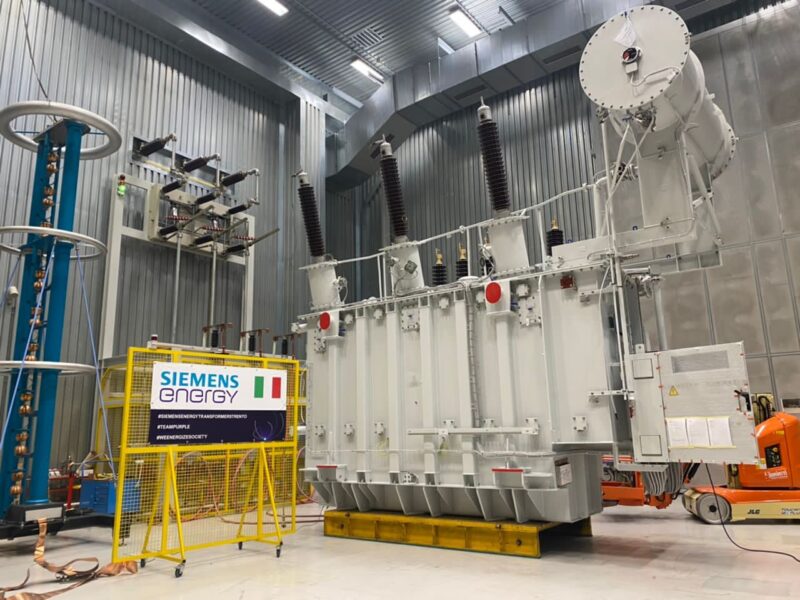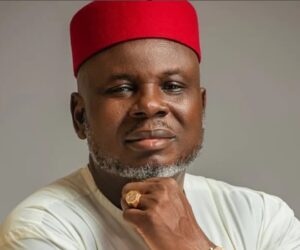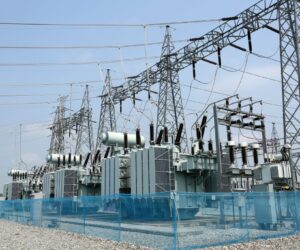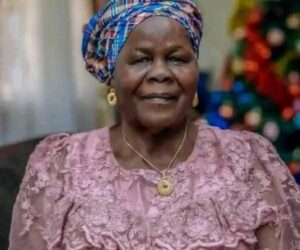Despite the increase in power generation, customers in Kaduna, Katsina and Kano states are complaining of low supply of electricity to meet their needs.
Daily Trust reports that the rainy season is always a period when Nigerians enjoy electricity due to hydro power plants operating at their maximum capacity over availability of resources.
However, some sources in the electricity sector told the Daily Trust that despite the teething problems of distribution occasioned by vandalism and lack of willingness for some people to pay their bills, the DisCos are doing a lot to bridge the gap.
SPONSOR AD
The sources said they always try to balance the distribution of the available electricity between industrial areas and metred locations that are willing to pay for the power they receive and other residential locations.
“The issue of Band A, Band B, Band C and others is known to everyone. It is therefore disingenuous to generalise that there is no supply of electricity,” one of the sources said.
In Katsina State, erratic power supply has taken a toll on businesses, rendering thousands of business owners jobless and subjecting them to untold hardship. Residential buildings are also suffering as many homes go without power for days.
Residents in the state have been suffering continuously from the erratic power shortage, constant low voltage when it is available, as well as causing damages and losses to business owners.
Bakeries, welding and fabrication factories, shop owners and other macro and micro businesses that require power to survive are the most affected, aside residential buildings.
Even when there is power supply, people experience low voltage such that they cannot power electrical appliances, Daily Trust gathered. Business owners are devising alternatives for survival.
Government and private institutions are also forced to revert to alternative source of energy like solar power to reduce the burden of over relying on the conventional source of power which is irregular.
Some business owners and electricity consumers such as Dr. İsma’il Balarabe said they have been struggling to survive under excessive power shortages in Katsina State.
Balarabe said, “Our businesses have crashed, we have incurred losses due to that. Sometimes, we don’t have power supply up to one hour.”
Another affected customer, Dr. Muktar Alkasım, who stated that the epileptic power supply has been persistent in Katsina State, noted that the situation had crippled businesses across all sectors of human endeavours.
“In my view, we don’t have electricity that can run any business no matter how small it is. Places where you can find electricity, it only comes once in a while and it cannot power any appliance due to low voltage.”
In the same vein, Mrs. Ngozi Anosike, who is a shop owner dealing in soft drinks said her business has collapsed, forcing her to resort to menial jobs in her neighbourhood. She said there was an urgent need to address the problem.
Ngozi said, “Sometimes, we spend more than seven to ten days without electricity and when it comes, it hardly stays for an hour. Oftentimes, it comes with low voltage which cannot power anything.”
Hajiya Hannatu also lamented that she can no longer preserve food items in the fridge due to the situation.
“I can no longer buy meat or fish in bulk because they will get bad due to the poor power supply. Even when you have power, the voltage is too low to carry the fridge”, she said.
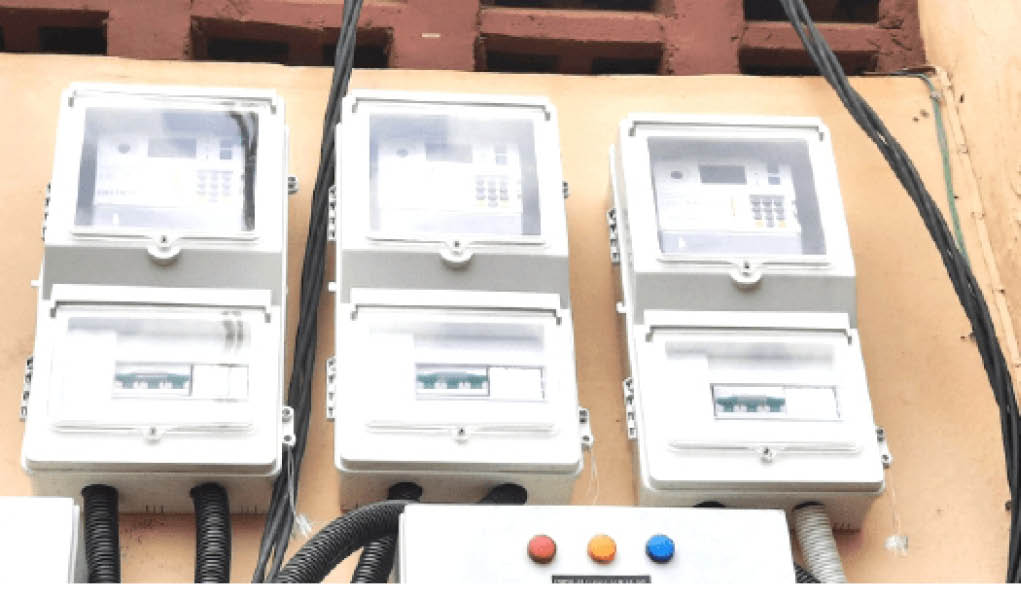
Kano residents decry uneven electricity distribution
In Kano, Daily Trust gathered that there is a growing disparity in electricity supply.
Commercial zones that pay higher tariffs reportedly enjoy longer hours of power, while many residential areas are left in darkness for most parts of the day.
Ahmad Aminu, a resident of Naibawa quarters in Kano metropolis, described the situation as frustrating.
“Before, during the rainy season, we used to get more hours of electricity because of the rise in water levels at hydro stations. But this year, it is different.
“Now, they bring the power around 11 or 12 midnight and take it by 5 or 6 in the morning, even though we use prepaid meters,” he said.
Yusuf Idris, another resident from Kuntau, expressed similar concerns. He noted that despite a steep increase in monthly payments, the supply has worsened.
“They used to collect around N5,000 from us monthly. But in the last two months, it jumped to over N17,000, a hike of over 300 per cent. Yet, we are getting fewer hours than before,” Idris lamented.
He added that the hike has led to mass disconnections in the area, with many households turning to solar energy as an alternative.
“A lot of people are saying they won’t reconnect to the national grid again,” he said.
However, industries and businesses that pay millions in electricity bills appear to be benefiting from the new arrangement.
Sama’ila Sulaiman, who runs a small ice block business at Farm Centre, said his firm now enjoys up to 22 hours of steady power supply.
“We were told that after increasing tariffs for customers on estimated billing, many were disconnected. So now, they’re giving us more electricity because we pay more,” Sulaiman explained.
Our supply stable but wind, rainfall affecting electricity poles – KEDCO
When contacted, the spokesperson for the Kano Electricity Distribution Company (KEDCO) Sani Bala Sani, said evidence shows there is stable power supply in its franchise areas of Kano, Katsina and Jigawa.
He, however, said due to the rainy season there is disruption of electricity in some areas due to fall of electricity poles caused by strong winds.
“Some customers might be in darkness for a short period of time as it takes some time to fix it. Secondly, there is preventive maintenance by the Transmission Company of Nigeria (TCN), which we announced to our customers, but contributed to the shortfall in electricity load to our franchise areas. Also, the recent strike by PENGASSAN also led to low supply,” he said.
He added that the company is making massive investments to improve its operations and customers’ experience by upgrading its infrastructure and investing in solar energy for reliable electricity in the states.
“We are upgrading our network to make sure that customers will not be affected when there is wind and rainfall. Secondly, we are investing heavily in renewable energy. Currently, we have plants that are already operational.
“We have Haske Solar in Kano which we have already started utilising and it is purely solar; for us to be able to augment our supply. So, whenever there is an issue with the power generation companies, it can serve as a backup and protect our customers.”
“With our level of investments, we are hoping that by the end of next year, we will have a minimum of 150 megawatts of our own solar generation,” he said.

Kaduna
Residents of Tudun Wada in Kaduna South Local government have lamented the low supply of electricity since September.
For Hadiza Adam, her sachet water business has been greatly affected due to the low supply of electricity.
Hadiza, whose shop is located at the popular Bakin Dogo Market said the few hours electricity is available in the night when everyone is asleep so she only sells what was refrigerated during the period.
“My profit is always limited as I don’t can only sell cold water in the fridge during this period. So, when it finishes, there is no opportunity to sell more. This is affecting my profit and despite the economic potential of the area, we keep making losses”, she said.
Another resident, Muhammed Ahmed, said the lack of adequate power supply in the area has deprived him of entertaining himself as he no longer subscribes to his satellite network.
“The electricity is only available around 1 am and they take it from 6 am. We are not vigilantes to be getting electricity at such odd hours. The annoying thing is that every month they bring bills for us to pay and they are saying we owe them thousands of naira as unpaid bills. We hope the government will do better,” he said.
Right now, in some communities in Kaduna State, residents are facing serious electricity problems. Unlike previous years, they no longer enjoy regular power supply in their homes. Areas such as Tudun Wada, Unguwar Sanusi, Sabon Gari, Tudun Nufawa, Rigasa, Hayin Dan Manni, Hayin Malam Bello, Zango, Kinkinau, Unguwar Kanyawa, and Abakwa, among others, have been in darkness because of poor electricity.
Most residents in these places complain that they hardly get electricity, and when they do, it only lasts for one to three hours in a day. Some people even spend several days without power at all. This has affected small businesses like welders and cold drink sellers who depend on electricity to survive.
Our correspondent reports that people now spend money to recharge their phones at private charging spots and fetch drinking water from neighbours who use boreholes powered by generators.
Some have started turning to solar energy to pump water due to the poor power supply, it was gathered.
Households say they are already used to not having light, yet at the end of the month, electricity bills still come, charging them for power they never enjoyed.
Badamasi Isa, a resident of Hayin Dan Manni, said their community has not had regular power for the past seven months.
According to him, “We only get two to three hours of electricity during the day, and since February 2025, we haven’t had electricity at night.”
He explained that this has destroyed businesses in the area, especially for cold drink sellers and welders who cannot afford solar power.
Because of the darkness, residents have even organised vigilantes to protect their shops and communities from criminals, Daily Trust gathered.
Another resident, Mustapha Baban Sultan of Millennium City Estate, stated that in Nigeria today, only the rich benefits from the electricity system.
He added, “We are now in a capitalist system where money does everything. Communities with wealthy residents are placed on ‘Band A’ and receive steady power, but they pay heavily for it. Meanwhile, poor communities without prepaid meters hardly get electricity, yet they are still billed.”
He lamented that life is becoming harder for ordinary Nigerians. “In the past, you don’t have to be rich to send your child to a good school. Today, if you want your child to learn, you must take him to an expensive private school. If you want clean water, you must drill your own borehole. If you want electricity, you must install solar. It’s now a case of ‘the more money you have, the better life you live.’”
This electricity crisis, residents argue, needs urgent government attention because millions of poor people are suffering.
A senior member of the Kaduna Electricity Distribution Company (KADelectric) said the low supply in the state was due to vandalism and wind that affected a transmission line that supplies electricity to Kaduna Town.
The staff, who does not want to be named, stated that this had led to some communities not having electricity for days while others got rationed electricity.
He added that the repair will soon be completed and the residents will get electricity as they used to.
Why North gets lower electricity allocation
A check on the website of the Nigerian Independent System Operator (NISO) yesterday showed that 4,025.00 megawatt of electricity was generated on the grid. 1,491 is allocated to the four DisCos that distribute electricity to the region.
A breakdown showed that Abuja Disco got 616MW, Jos Disco received 227MW, Kaduna Disco, 260MW, Kano Disco, 271 and Yola Disco, 117MW.
A source at the TCN who does not want his name in print as he is not allowed to speak with the press, said there has always been agreement on electricity allocation to DisCos.
The source stated that despite this agreement, DisCos sometimes reject load allocation because they lack capacity to distribute to their customers.
“This happens due to lack of investment in the distribution network as the companies have refused to invest in infrastructures to carry this load,” he said.
For the North, he said DisCos complain of customers not paying for electricity which explains why the region gets lower allocation.
“DisCos in the North are the least bankable in terms of revenue. If you can recall, all the DisCos were placed under receivership because the owners could not repay the loan they used to buy them. This is due to customers not paying their revenue. If they should collect more load, who will pay for the electricity when customers are not paying?” he asked.
“It is only Abuja DisCo that can boast of more revenue and we all know this is because they have rich customers. So, the issue is multipronged, with customers and DisCos at fault.”
‘Lack of industries, energy theft contributing to lower electricity allocation’
Speaking with Daily Trust, the President of Nigeria Consumer Protection Network, Kunle Olubiyo, said the issue of lower allocation of electricity to the North stems from inability to have a large number of industries, energy theft and lack of investments in distribution networks.
He explained that industrial hubs in the North used to be in Kano, Maiduguri and Kaduna, but that over the years and due to the collapse of the industries, the base load demand reduced.
Olubiyo said there are virtually no major industries that consume energy like the past.
“So, primarily we are left with Kano. But the major challenge that we have there is that the system operation in the Kano corridor, the network does not have the right kind of equipment on the grid that’s supposed to be embedded to manage the priority of the DisCo as electricity is not segmented in Band A, Band B, Band C, from the point of generation to transmission. It is at the distribution level that we have band A.”
He added that DisCos in turn prioritise areas where they can recoup their funds for more electricity as there are some areas where DisCos can’t recoup 30 per cent of their revenue even if they provide 24 hours power supply.
“That’s why you see most of the DisCos across the world, even where energy is available, we have what we call load rejection because they are benchmarking what they can take. So, they look at the commercial viability of their customers. For instance, apart from the Kano metropolis and the state capital, most of the places in the northern region, assessment has shown there are large bypasses of meters including areas resided by the rich.
“So the issue is that of energy theft, load rejection and the dearth of the right kind of equipment that’s supposed to be used in the management of grid network, system operation and control,” he said.
By Faruk Shuaibu, Abuja; Abdullahi Izma Yamadi, Katsina & Sani Ibrahim Paki, Kano

